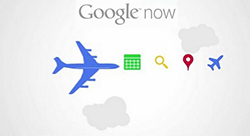
Researchers test personal data market to find out how much your information is worth
 The personal information that your smart phone can collect about you is increasingly detailed. Apps can record your location, your level of exercise, the phone calls that you make and receive, the photographs that you take and who you share them with, and so on. Various studies have shown that this
The personal information that your smart phone can collect about you is increasingly detailed. Apps can record your location, your level of exercise, the phone calls that you make and receive, the photographs that you take and who you share them with, and so on. Various studies have shown that this
data provides a detailed and comprehensive insight into an individual’s habits and lifestyle, information that advertisers and marketers dearly love to have.
Indeed, this information can be surprisingly useful. The Google Now smartphone app uses information such as your location to provide details it thinks you might find useful, such as directions home or nearby restaurants.
But this service isn’t entirely altruistic. Google knows perfectly well that it can use this information to sell adverts and other services.
That raises an interesting question. If companies such as Google can create a business model based on the use of this kind of personal information, how much is this information worth? And how should we value it when it comes to deciding who should have access to it and who shouldn’t?
Today, we get an answer of sorts thanks to the work of Jacopo Staiano at the University of Trento in Italy along with a few pals. These guys have kitted out 60 people with smart phones that record all kinds of personal details and then created a kind of marketplace in which they could sell it. The idea was to find out how each person valued the information collected.
Unsurprisingly, people value certain kinds of information more highly than others. But exactly how they value it depends on a complex set of other factors, such as the conditions under which information was gathered.
The results clearly show that some information is more highly valued than others. “We have found that location is the most valued category of personally identifiable information,” say Staiano and co. And participants tended to value processed information more highly as well because of their perception that it gave a greater insight into their lifestyle.
A curious finding is that not all participants valued their personal data equally. In fact, people who travel more each day tend to value their personal information more highly.
It seems clear that the focus on protecting personal information is likely to become greater. But it also looks clear that some kind of market for personal data will emerge. Just how that will happen is anybody’s guess. But one way or another, we are all going to have to think much more carefully about the value of our personal data, whether we are happy to sell it or not and if so, for how much.
Source: www.technologyreview.com




